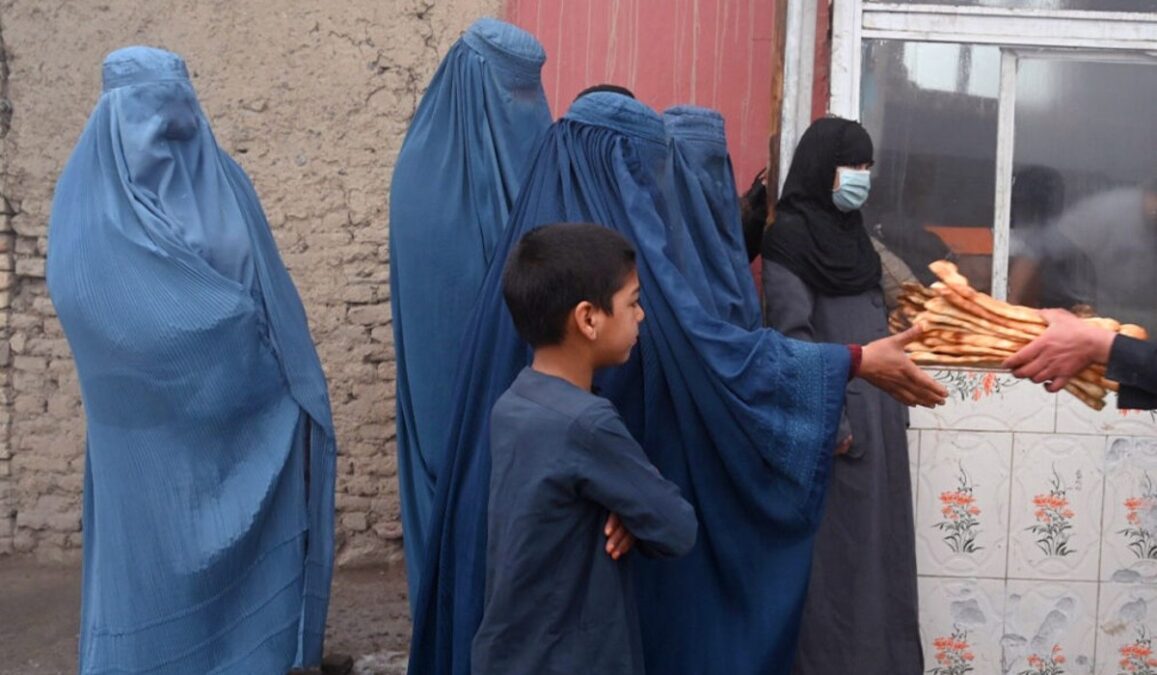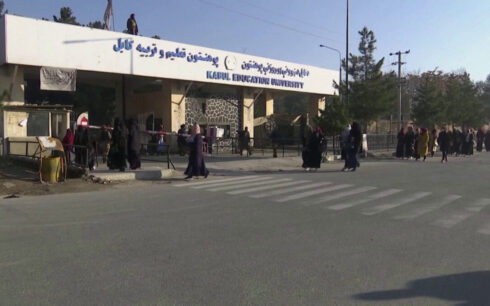International Crisis Group in a report published Thursday, Feb. 23, assesses the impacts the Taliban’s restrictions on women and girls in Afghanistan have left on women and the country and says such attempts have deepened the crisis in Afghanistan.
The organization said the Taliban has ordered the most sweeping rollbacks of women’s rights since retaking power in 2021, part of a series of escalating moves to enforce the group’s heterodox conservatism. Girls and women are losing access to education, employment and public spaces as well as other basic freedoms, the watchdog said.
Taliban leader Hibatullah Akhundzada appears to insist upon these measures out of personal conviction and to assert his authority over the movement and the country, the report said, adding that neither his ideological views nor his quest for power will change in the near term, despite justifiably horrified reactions from around the world.
“The new restrictions have dealt women’s freedoms a grievous blow. They are also impeding the delivery of life-saving assistance, disrupting the world’s largest aid operation even as half the population suffers from acute hunger. The unrecognized regime’s isolation undermines humanitarian and development efforts. It may result in drastic aid cuts,” the report says.
No good options exist for protecting women’s and girls’ rights and helping millions of people suffering under Taliban rule, the report suggested, adding that aid workers must pause and recalibrate when they cannot uphold humanitarian principles and donors should fund humanitarian appeals and try to create space for development agencies and address the country’s socio-economic disaster.
According to the report, Taliban has installed one of the world’s most regressive governments, especially with regard to women’s rights, and the new regime in Kabul has imposed even stricter rules on women in the final weeks of 2022, with a pair of heavy-handed rulings banning them from studying in universities and working for NGOs.
Donors are justifiably frustrated, but they should stay focused on the aspirations and welfare of Afghans, the report suggests, adding that donors “should fund humanitarian appeals, help aid agencies uphold their principles, take steps to address the deeper problems underpinning the country’s socio-economic disaster and channel efforts at social change into long-term projects.”
Two thirds of the population, or 28 million people, will need humanitarian assistance in 2023, the report said, adding that kneejerk reactions, such as cutting aid budgets, extending sanctions and inflicting other punishments, would have devastating effects on regular Afghans.
As a solution to the issues, the report suggest that donors could better assist by:
Funding humanitarian appeals. At $4.6 billion, the 2023 UN humanitarian appeal for Afghanistan is the largest request in history, anywhere in the world. Donors should respond to the vast scale of human needs.
Supporting principled aid delivery. Donors should give aid agencies they fund flexibility and support for the hard choices their staff in the field must take when confronted with Taliban meddling – and pause assistance, when necessary.
Focusing on long-term social change. The Taliban’s subjugation of women should not provoke international reprisals that exacerbate their suffering; instead, donors should adopt strategies aimed at fostering a more inclusive and open society over the long term.
Addressing the causes of the disaster. The Taliban’s abysmal reputation will constrain options, but if they wish to see Afghanistan stabilize, donors should continue to work on the restoration of central banking, electrical grids, irrigation systems and other essential public goods.
The most principled response to the Taliban’s terrible behavior would be finding ways to mitigate the harms inflicted on those vulnerable groups, the report added.





